Nendo adapts traditional Japanese paper-making to design crumpled lamps
Japanese designers Nendo have adapted a traditional Japanese paper-making technique to create a series of lamps that are smooth at one end and gently wrinkled at the other.
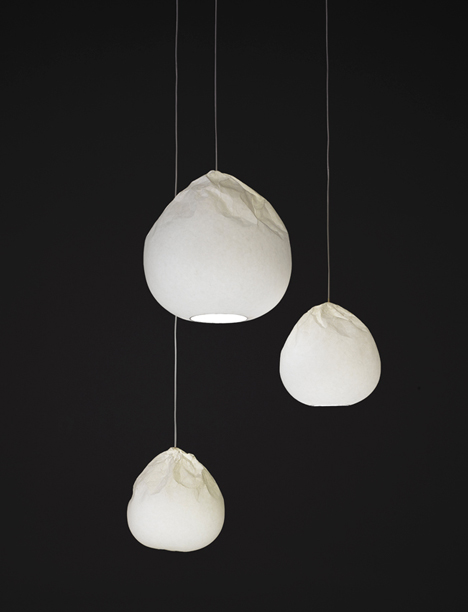
Nendo called the collection Semi-Wrinkle Washi, with "washi" being the name for Japanese paper made from plant fibres. "Washi is made by passing fine screens through a bath of plant pulp and water to collect the pulp, then by drying the screens and peeling off the new paper sheets," said the designers.
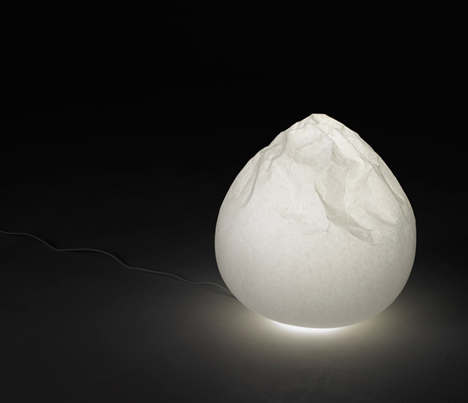
To create the lamps they collaborated with Taniguchi Aoya Washi, a company in the Tottori Prefecture in western Japan which is famous for creating three-dimensional objects using the same technique. "Rather than pasting sheets of washi together to create forms, the company uses the same process to create beautiful seamless forms that are three-dimensional from the start," Nendo said.
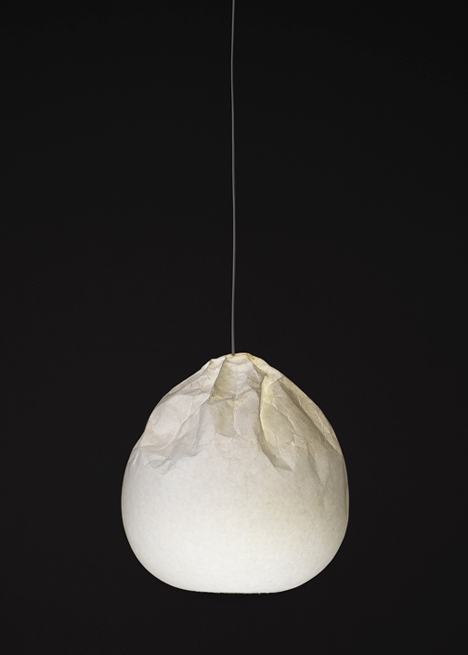
According to the studio, the lamp shades created through this process are so smooth that they "can be confused with white glass or plastic."
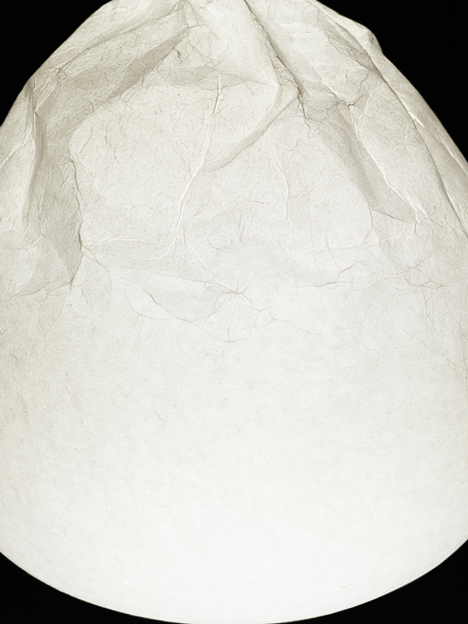
They found that adding a vegetable called konjac to the mixture creates wrinkles that reveal the objects are made of paper, but this technique means the surface no longer communicates that it was made with the company's traditional technique.
"After running into this problem, we decided to take the best of both worlds: to create lighting fixtures that are only half-formed with the wrinkle process," they explained. "The wrinkles can be applied gradually so that the two different effects come together seamlessly."
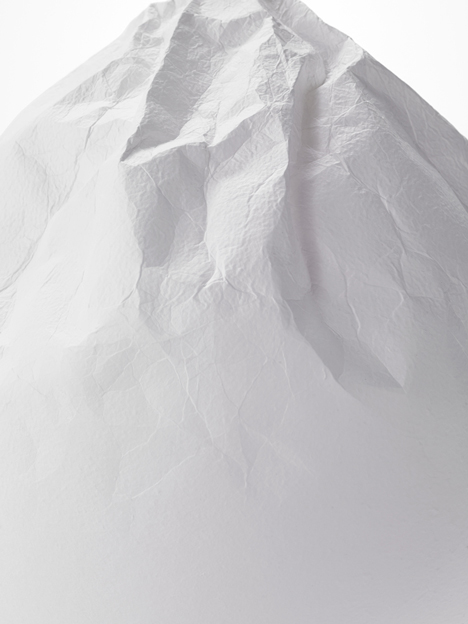
The resulting shades have smooth surfaces at the bottoms and softly pointed, crumpled tops. They come as pendants or table lamps and have a hole in the underside allows that light to escape.
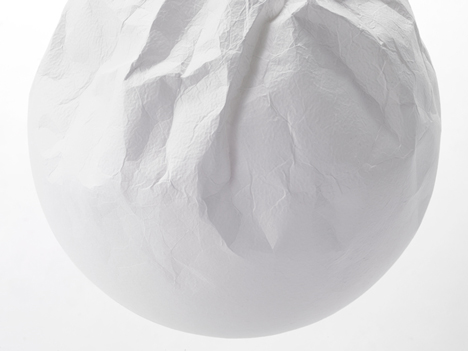
The wrinkles shrink the overall size of the fixtures so Nendo decided on the desired final size and calculated backwards to work out what the starting form and size should be.
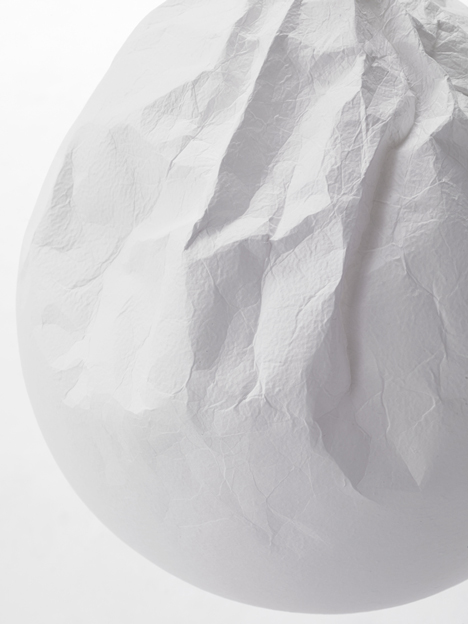
"This hybrid process created a new face for paper, one that combines the softness and tensility that only three-dimensional washi can display," the designers added.
The product will be available exclusively from Seibu department stores in Japan.
Photographs are by Hiroshi Iwasaki.